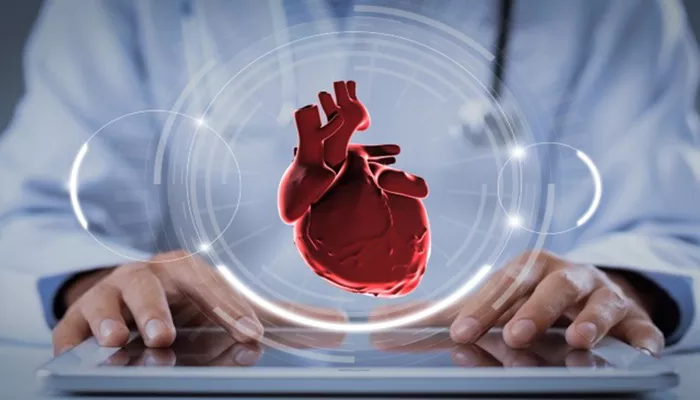Myocarditis is a condition characterized by inflammation of the heart muscle, known as the myocardium. This inflammation can significantly impact the heart’s ability to pump blood effectively and can lead to a range of symptoms, including chest pain. Understanding how chest pain feels in the context of myocarditis is crucial for both patients and healthcare providers.
This article will delve into the nature of chest pain associated with myocarditis, exploring its causes, symptoms, diagnosis, treatment options.
What Is Myocarditis?
Myocarditis occurs when the heart muscle becomes inflamed, often due to an infection or an autoimmune response. The inflammation can result from various factors, including viral infections, bacterial infections, autoimmune diseases, and exposure to certain drugs or toxins.
SEE ALSO: How Do You Check for Myocarditis?
Types of Myocarditis
Myocarditis can be classified into several types based on its onset and duration:
Acute Myocarditis: This type develops quickly and is often caused by viral infections. Symptoms may resolve shortly after onset.
Chronic Myocarditis: This type persists over a longer period and may recur. It is often linked to autoimmune disorders.
Lymphocytic Myocarditis: A rare form where lymphocytes (a type of white blood cell) invade the heart muscle, often following a viral infection.
What Does Myocarditis Chest Pain Feel Like?
Chest pain associated with myocarditis can vary widely among individuals. Patients may describe it as:
Sharp or Stabbing: Some experience a sharp or stabbing sensation in the chest that can be alarming.
Pressure or Tightness: Others may feel a sense of pressure or tightness in their chest, similar to what one might feel during a heart attack.
Radiating Pain: The pain may radiate to other areas such as the neck, shoulders, or arms.
Timing And Triggers
The timing and triggers of chest pain in myocarditis can also differ:
At Rest vs. During Activity: Some patients may experience chest pain at rest, while others notice it during physical activity or exertion.
Associated Symptoms: Chest pain in myocarditis is often accompanied by other symptoms such as shortness of breath, fatigue, and irregular heartbeats (arrhythmias).
Severity of Chest Pain
The severity of chest pain can range from mild discomfort to severe pain that may mimic a heart attack. In some cases, individuals may not recognize their symptoms as serious until they seek medical attention.
Cause of Chest Pain in Myocarditis
The underlying inflammation in myocarditis affects the heart muscle’s structure and function. This inflammation can lead to several mechanisms that cause chest pain:
Inflammation of Heart Tissue: The inflammatory process can irritate nerve endings in the heart muscle, leading to pain sensations.
Reduced Blood Flow: Inflammation can impair blood flow to the heart muscle itself, causing ischemic-like symptoms.
Arrhythmias: The inflammation may disrupt the electrical signals in the heart, leading to arrhythmias that can cause palpitations and discomfort.
Symptoms Associated with Myocarditis
In addition to chest pain, myocarditis can present with various symptoms that may help differentiate it from other conditions:
Shortness of Breath: Patients may experience difficulty breathing during exertion or even at rest.
Fatigue: A general sense of tiredness or weakness is common.
Swelling: Swelling in the legs, ankles, or feet may occur due to fluid retention.
Fever and Flu-like Symptoms: Some individuals report fever, body aches, or sore throat as part of their initial presentation.
Diagnosis of Myocarditis
Diagnosing myocarditis can be challenging due to its nonspecific symptoms. Healthcare providers typically follow these steps:
Medical History Review: A thorough history helps identify potential causes such as recent infections or autoimmune conditions.
Physical Examination: Doctors will look for signs such as irregular heartbeats or fluid retention.
Diagnostic Tests:
Blood Tests: To check for markers of inflammation and infection.
Electrocardiogram (ECG): To assess the heart’s electrical activity for arrhythmias.
Echocardiogram: An ultrasound of the heart to evaluate its function and structure.
Cardiac MRI or Biopsy: In some cases, advanced imaging or biopsy may be necessary for confirmation.
Treatment Options for Myocarditis
Treatment for myocarditis focuses on managing symptoms and addressing the underlying cause:
Medications
Anti-inflammatory Drugs: Non-steroidal anti-inflammatory drugs (NSAIDs) may help reduce inflammation.
Heart Failure Medications: Diuretics and ACE inhibitors can manage symptoms related to heart failure if present.
Antiviral Treatments: If a viral infection is identified as the cause, antiviral medications may be considered.
Lifestyle Modifications
Patients are often advised to make lifestyle changes that support heart health:
Rest and Activity Modification: Limiting physical activity until symptoms improve is crucial.
Dietary Changes: Following a heart-healthy diet rich in fruits, vegetables, whole grains, and lean proteins.
Conclusion
Chest pain caused by myocarditis presents a complex challenge for both patients and healthcare providers. Understanding how this condition manifests—through its unique characteristics of chest pain along with accompanying symptoms—can lead to timely diagnosis and effective management.
Patients experiencing unexplained chest pain should seek immediate medical attention. Early intervention is key to preventing complications associated with this inflammatory condition. With appropriate care and monitoring, many individuals recover from myocarditis without long-term effects on their health.
Related topics:


